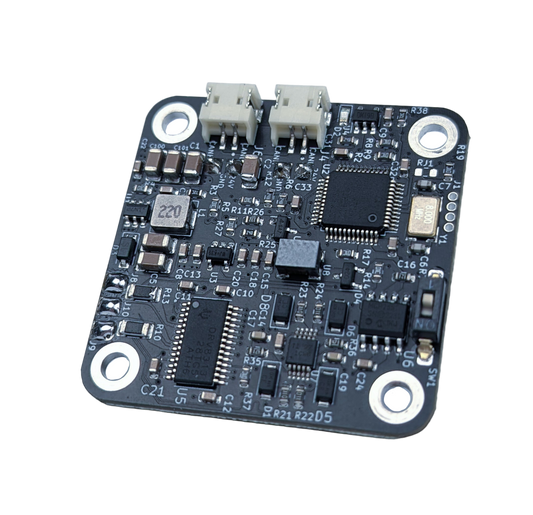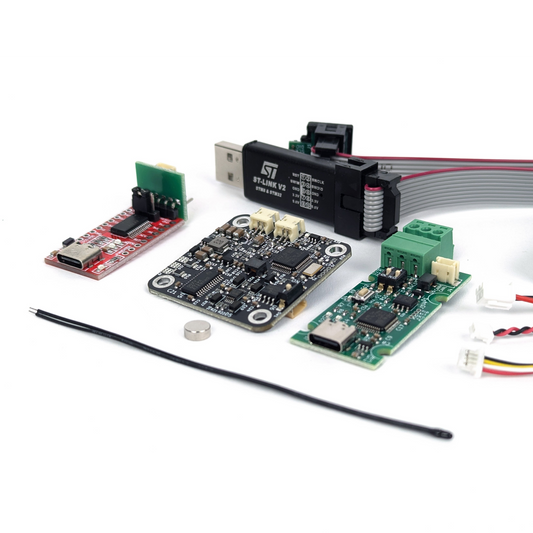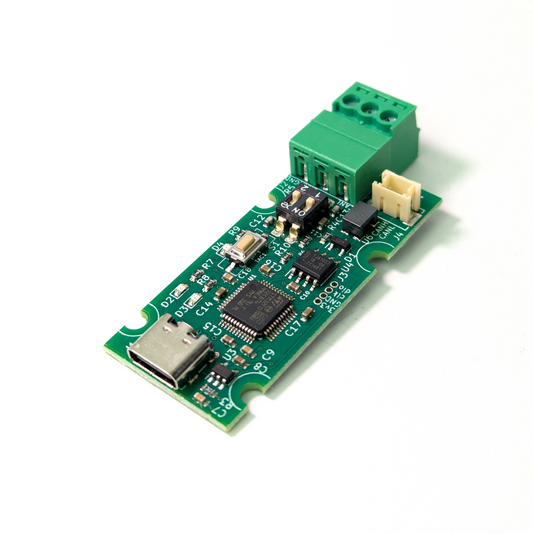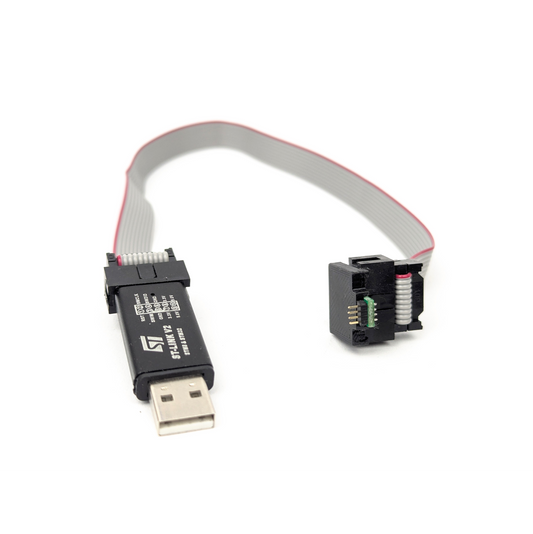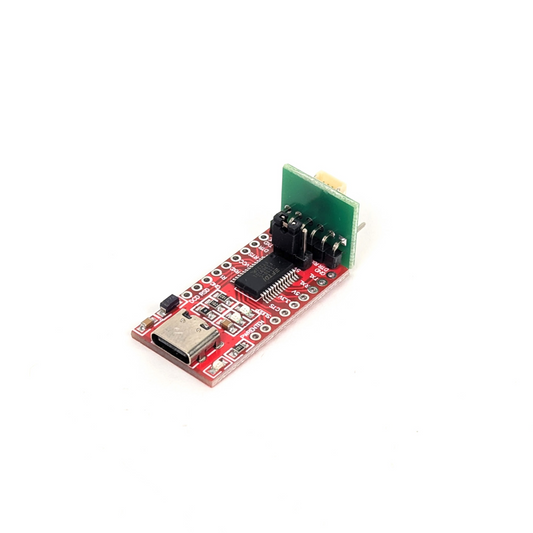source robotics
CANvas USB to CAN adapter
CANvas USB to CAN adapter
Low stock: 4 left
Couldn't load pickup availability
CANvas is a USB to CAN Bus adapter ideal for robotic applications. It is designed to be easily integrated with all Source Robotics products. It leverages open-source slcan firmware, and the design files are also open-source. This adapter is special with features like split termination, common mode choke, and TVS diode protection. By using these features, it employs industry-standard hardware to increase reliability, protection, and reduce noise.
Read more about CANvas here!
If you need more information or modification of the product contact us at: info@source-robotics.com
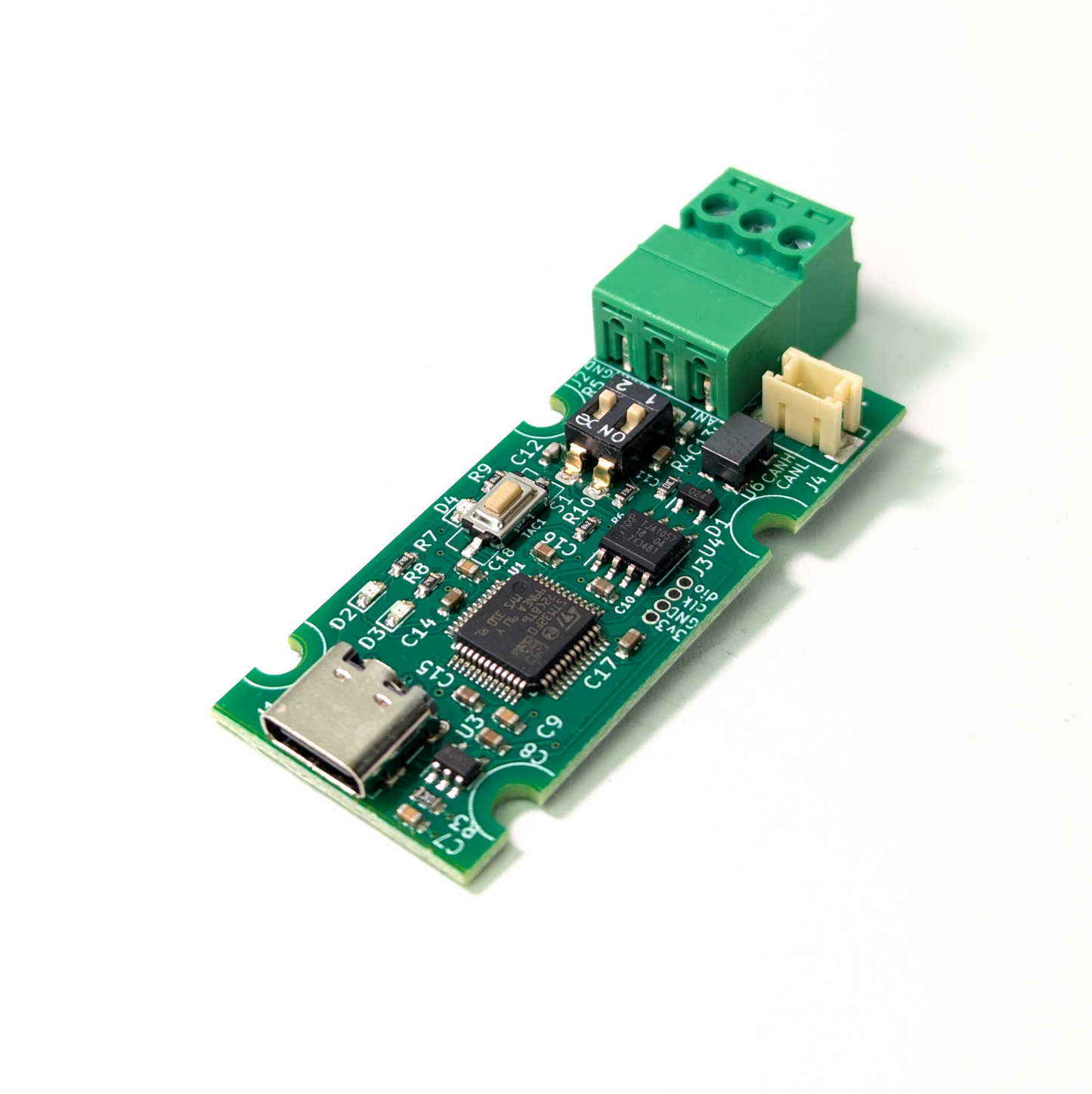
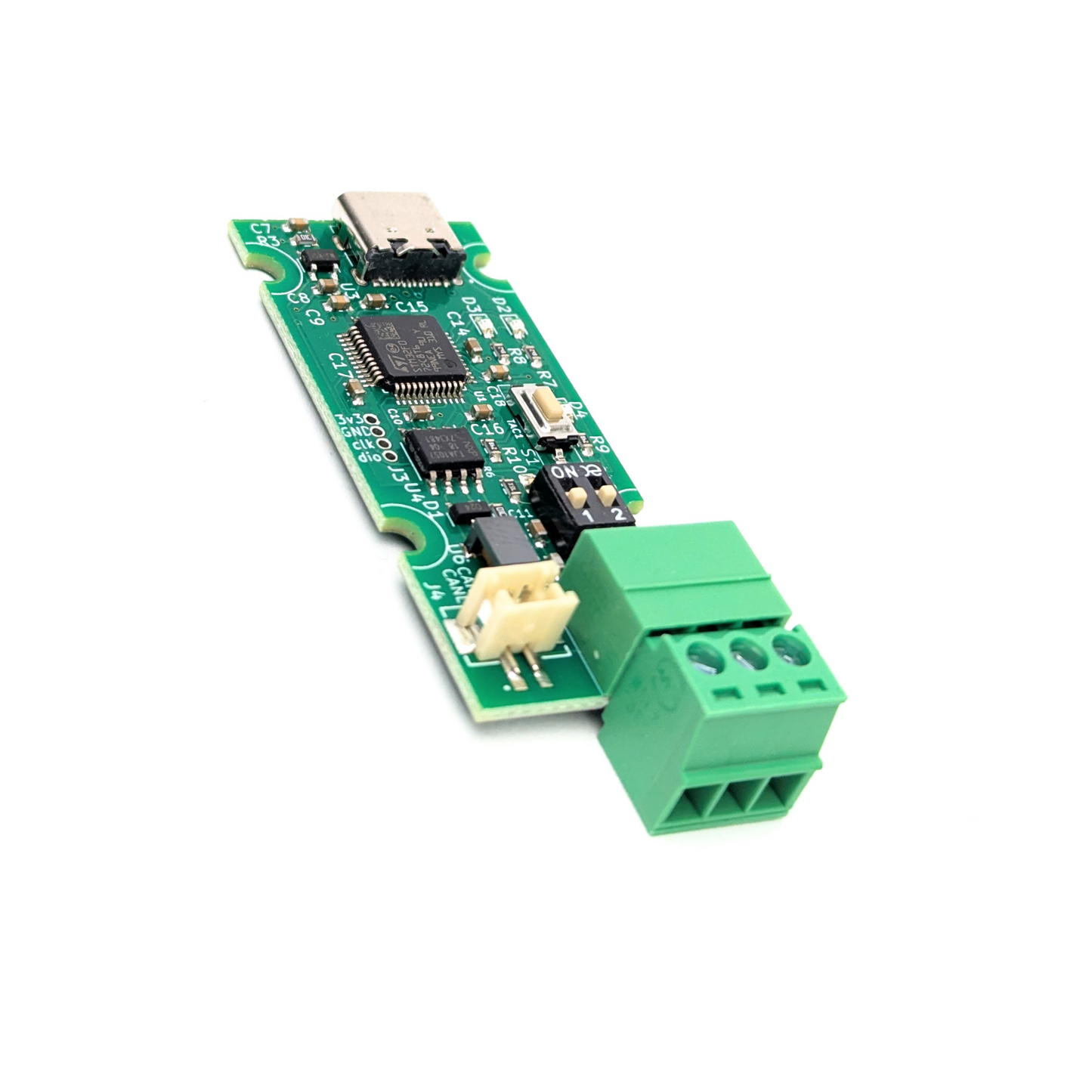
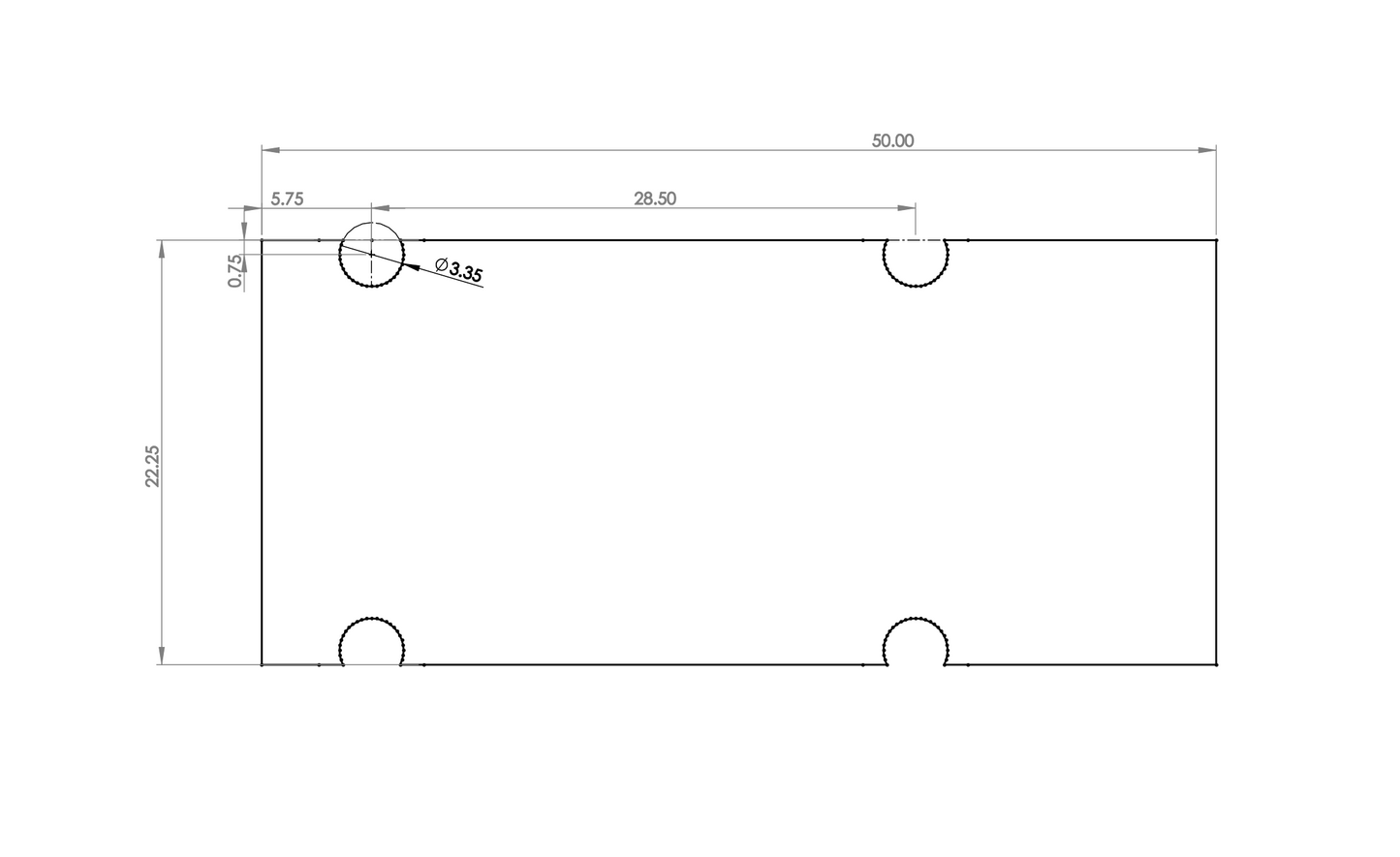
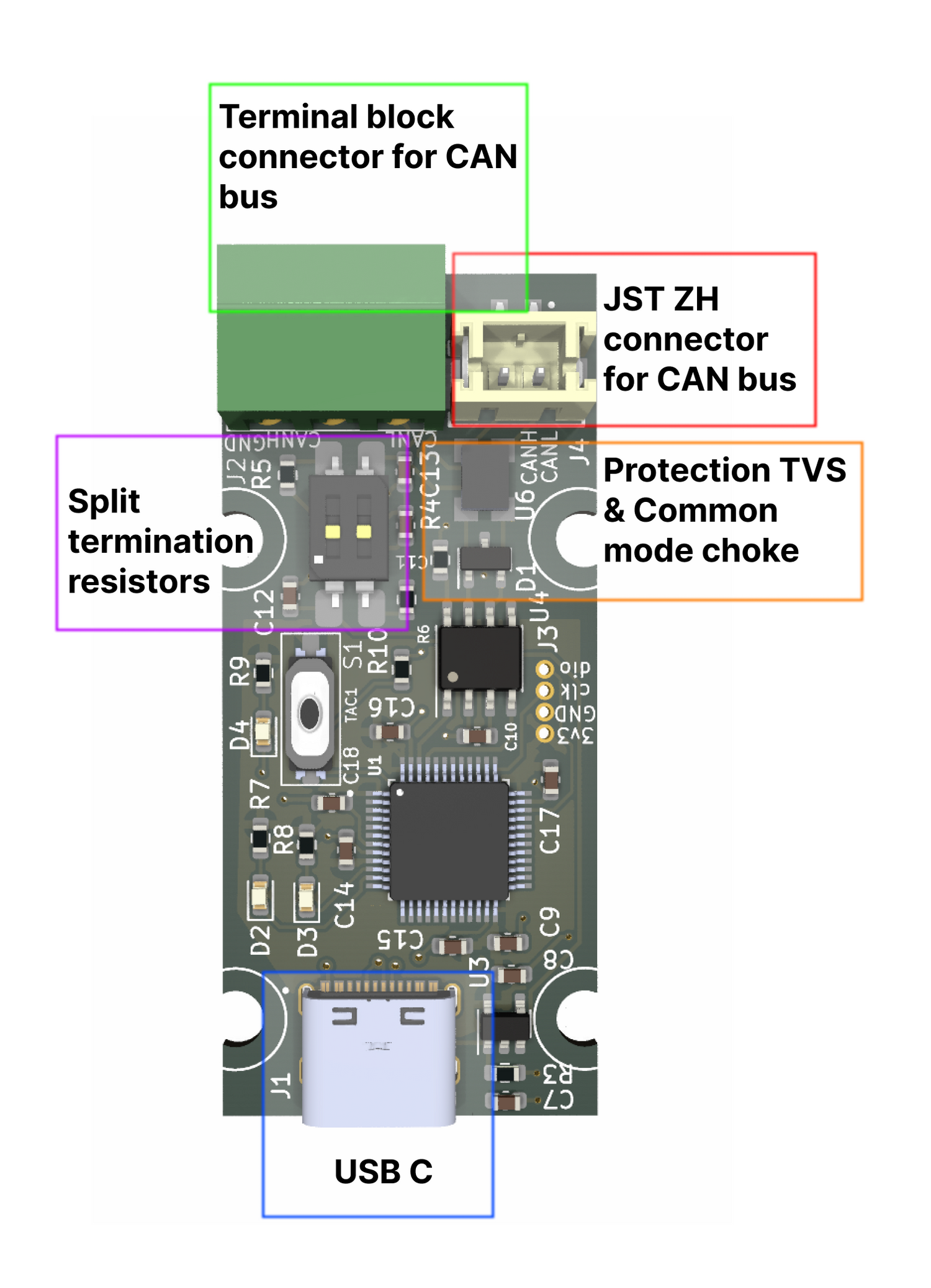
Specs
- Supports CAN2.0A and B
- Baud rates up to 1M
- Button for entering bootloader
- Uses popular open source SLCAN firmware
- Works on Windows, Linux, Mac, raspberry pi
- Dimensions: 50mm x 22mm
- Mass: 8.1g
Connectors
- PC: USB-C
- CAN: JST ZH 2 pin
- CAN: 3.81mm terminal block 3 pin
Special features
-
TVS protection Diodes
A bidirectional TVS diode can protect the CAN transceiver bus pins for short overvoltage events. TVS diodes offer the most effective protection against ESD, burst EFT, and surge transients because of short response times of a few picoseconds and power ratings up to several kilowatts.
-
Common mode choke
Common-mode chokes are used in automotive CAN networks to enhance electromagnetic compatibility (EMC) by filtering out high-frequency noise from the ECU through the CAN transceiver. They also improve the transceiver's immunity to electromagnetic disturbances on the bus.
-
Split termination resistor
The split termination uses two resistors equal to half the cable’s characteristic impedance (typically 60Ω each) with a capacitor between the common-mode point and ground. While it uses more components, it creates a low-pass filter for common-mode noise, improving electromagnetic emissions. The RC components form an RC low-pass filter with a specific corner frequency.
Resources
Recommended products
-
Spectral Micro BLDC Controller
Regular price €82,11 EURRegular priceUnit price per -
Spectral Micro BLDC Starter Kit
Regular price €154,70 EURRegular priceUnit price per -
CANvas USB to CAN adapter
Regular price €47,60 EURRegular priceUnit price per -
JTAG Programming Adapter 1.27 pitch
Regular price €23,80 EURRegular priceUnit price per -
USB to Serial Adapter
Regular price €29,75 EURRegular priceUnit price per




